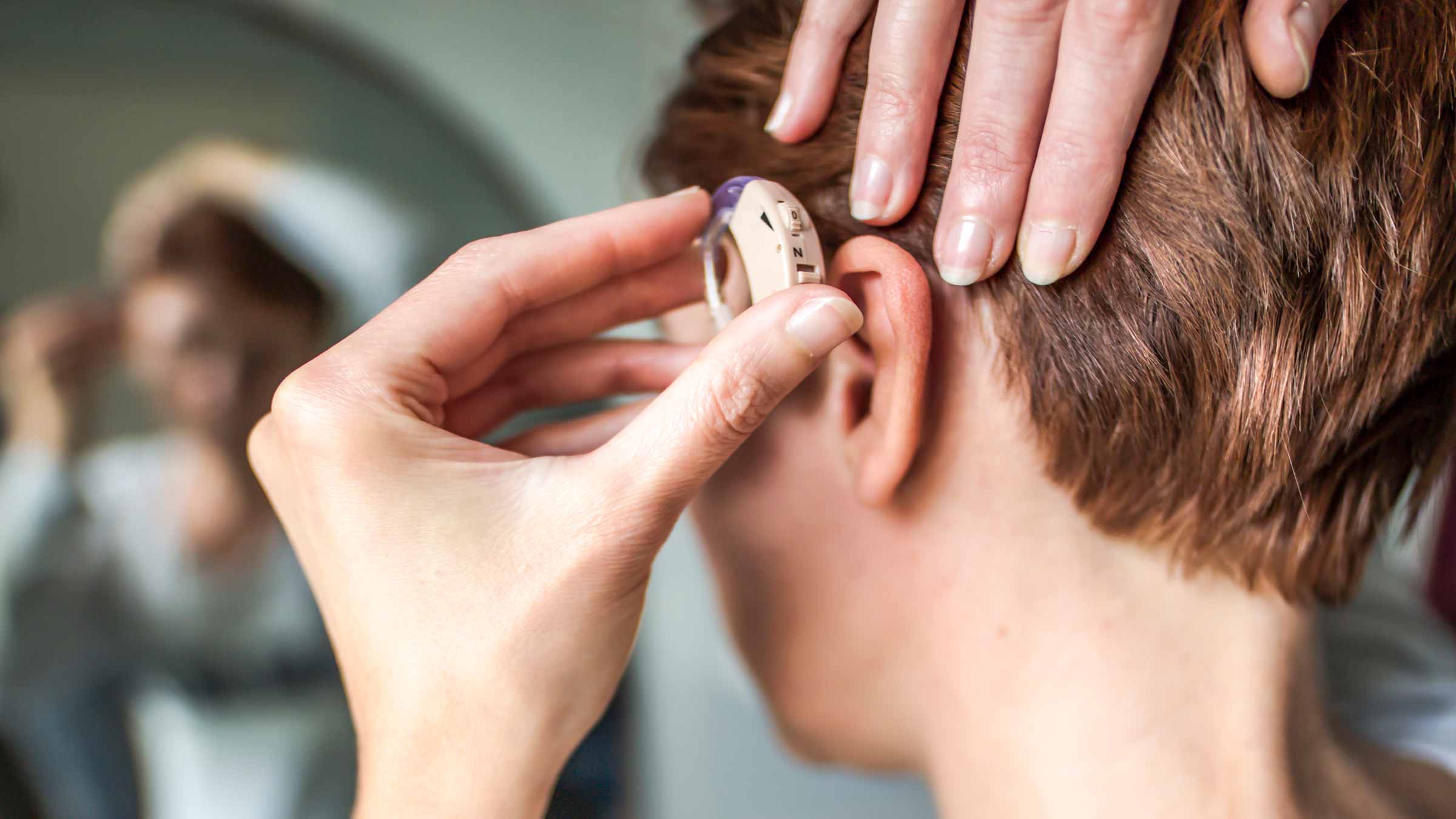
Over-the-counter hearing aids will hit the market beginning in mid-October, according to a final rule issued by the U.S. Food and Drug Administration.
Without the requirement of a prescription, it could mean better access and affordability for those in need of hearing aids for mild to moderate hearing loss.
Prescription hearing aids come with a hefty price tag that can range from $2,000 to $7,000 or more. While over-the-counter hearing aids are expected to cost less, estimates are that they will likely still cost around $500, and in some cases, the products may not be returnable.
Hearing aids that are for severe hearing loss will still require a prescription, but for people with a mild hearing loss, over-the-counter hearing aids could be a good option.
In fact, about 28.8 million U.S. adults could benefit from using hearing aids, according to the National Institute on Deafness and Other Communication Disorders (NIDCD).
But often, hearing loss is a hidden disability that no one wants to admit to. Many people forgo hearing screenings or don’t want to wear hearing aids or be perceived as old. That group likely will still not seek help.
Among adults 70 and older who have hearing loss and could benefit from wearing hearing aids, fewer than one in three have ever used them, according to the NIDCD.
Even so, there are people who will benefit from the change by having many choices without needing a prescription. But there are some things to consider before making a purchase.
Get a hearing screening.
Before you shop, consider getting a hearing test with an audiologist or an ear, nose and throat (ENT) doctor. People often underestimate the amount of hearing loss that they have. It's basically stepping on the scale to find out, “Is there a hearing loss? How bad is the hearing loss? Are there any kind of medical issues that need to be addressed? Based on that hearing loss, what is the best option?” It may be for a mild to moderate hearing loss that an over-the-counter hearing aid is the best and most cost-effective option. But in other scenarios, it may not be appropriate, such as for someone who has a sudden hearing loss, different hearing loss in each ear, dizziness, drainage from the ear or ear pain. Ear wax blocking the ear canal could even be a reason for hearing loss that should be resolved by removal of the wax, rather than amplification of sound. If someone does purchase an over-the-counter hearing aid, an audiologist can also help assess if it is appropriate for the patient.
Check the return policies with the retailer and manufacturer before you buy.
A federal law ensures that hearing patients have a 30-day trial for prescription hearing aids. However, over-the-counter hearing aids may be considered a consumer product off the shelf. During the rules process, the FDA responded to concerns about returns. As a result, labeling will be required on packaging to provide notice of the manufacturer's return policy. That’s something to check before purchasing.
Differences between prescription hearing aids and over-the-counter hearing aids.
When you buy a prescription hearing aid, service is included, and it’s absolutely critical. The hearing aid is a customized in a very accurate fashion to deal with hearing loss. With an over-the-counter hearing aid, that would not be an option. Over-the-counter hearing aids are intended to be self-fit. In other words, the patient is expected to adjust the device to the appropriate listening level and be able to connect it to a smart phone, etc., if the device is capable. For a mild to moderate hearing loss, it could work.
Taking care of your hearing health is a great first step to caring for your overall health.
There’s a very strong established link between cognitive decline and hearing loss, according to numerous studies. If you have untreated hearing loss, you are much more likely to develop dementia. Hearing loss is associated with social isolation and depression. There are a bunch of downstream effects that are really not great. Hearing loss is also often progressive, meaning you should get checked each year so adjustments can be made.

Schedule a hearing screening
Audiologists at The Ohio State University Wexner Medical Center have more than 170 years of collective experience diagnosing hearing loss.
Schedule an appointment today






